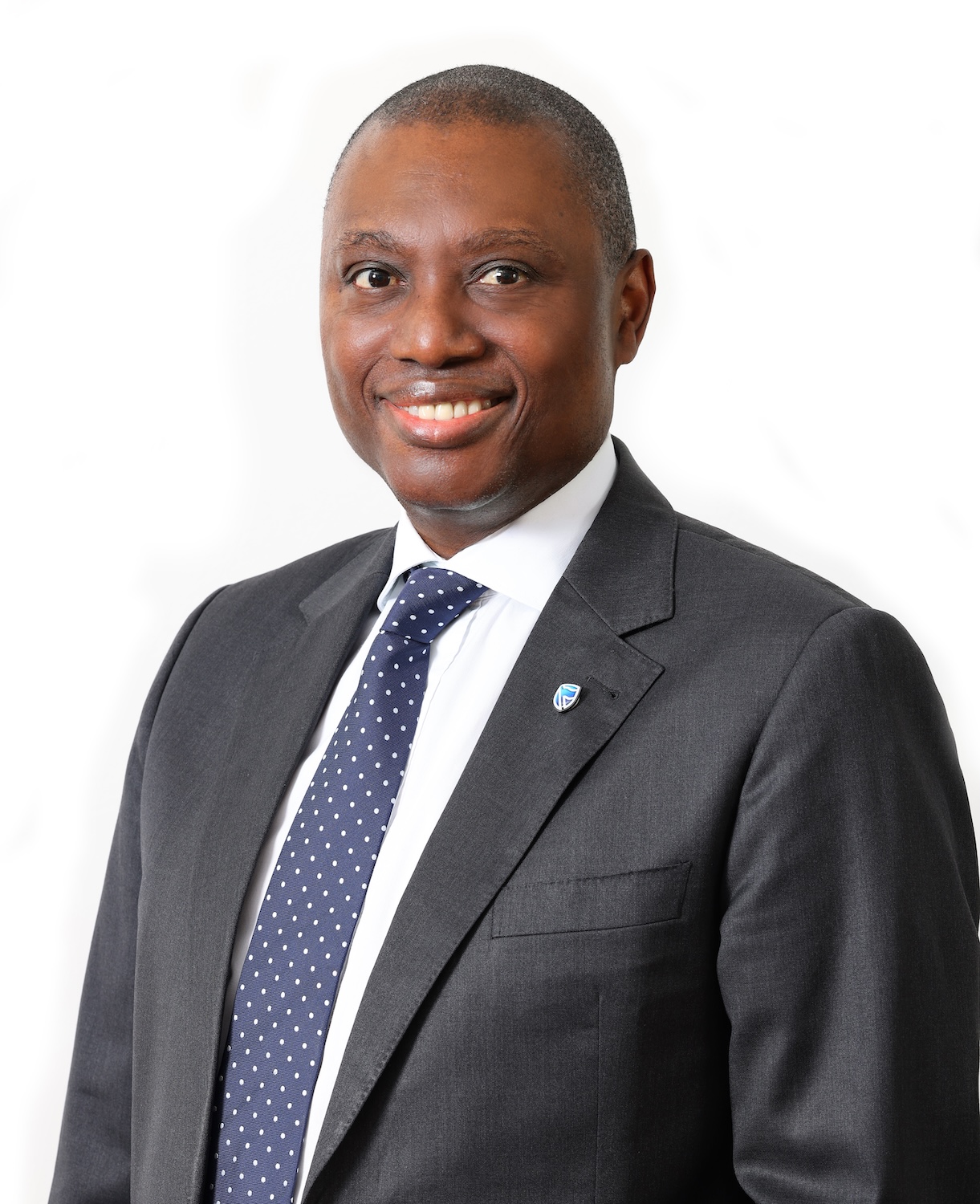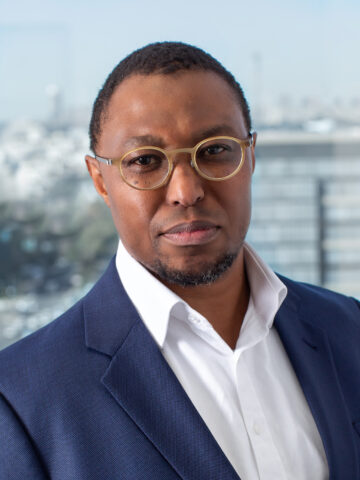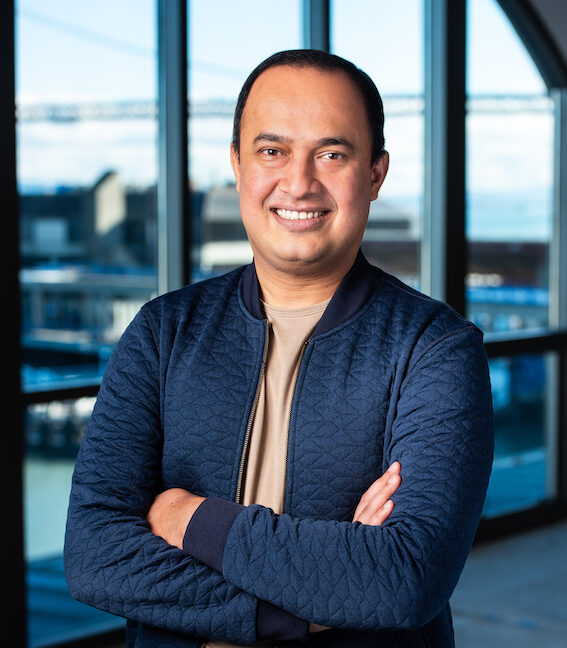Standard Bank CEO Sim Tshabalala wants governments and businesses to seize the competitive advantages of the continent.
Simpiwe “Sim” Tshabalala has established himself as one of South Africa’s most influential corporate leaders and the longest-serving CEO of a major South African bank. Beginning in 2017, his tenure as top executive at Standard Bank is notable not only for its longevity, but also for his pioneering role as the first Black executive to lead one of the nation’s four largest banks—a milestone reflecting broader transformations within South Africa’s corporate landscape.
Under his leadership, Standard Bank has evolved into Africa’s largest financial services group by assets, with a footprint spanning 21 countries across the continent and four others around the world. This unparalleled geographic reach positions the bank uniquely to support Africa’s economic growth and integration into global markets. With total assets of $184.6 billion and customer deposits exceeding $112 billion, Standard Bank stands far ahead of regional competitors, combining scale with a demonstrated commitment to talent development, succession planning and sustainable growth. The company is ranked 18th in the world on Forbes’ list of best places to work—in Africa it’s No. 1.
In this edited conversation with Brunswick’s Itumeleng Mahabane, Tshabalala shares reflections on navigating complexity, sustaining market leadership and advancing Africa’s economic future. His remarks offer a glimpse of visionary stewardship in a rapidly shifting global environment marked by economic uncertainty, geopolitical tensions, climate challenges and technological innovation.
What is your view about the strengths of Standard Bank’s leadership succession model?
We have a historical focus on developing our own talent. We’ve got a set way of talking about our purpose, what we stand for, our strategy, how we are organized, what we measure. All the way up and down the organization, people who come through are people that believe in our purpose and that strategy. People want to be here, especially at the top echelons. That matters when it comes to succession. The bench strength is quite deep.
I have a regular “people day” with my execs, and I report that to the board. Each of my direct reports has a people day which they report to me. That process builds up—upward through the organization and over time. Through it we identify the talent, where are the talent pools, where are the gaps, who are the emerging successors, et cetera.
So when you think about my own succession, when the time comes, it’s not a mystery. I can assure you there’s more than one person who could potentially succeed me.
How does Standard Bank see the energy transition and the UN sustainable development goals?
We have to consider the context. Africa has been a small contributor to the CO2 emissions, and yet it has suffered a disproportionate negative impact. One of the main reasons for that vulnerability is poverty. And so, Africa needs to use all of its resources to get its people out of poverty, which will result both in a more resilient continent and, in the long run, diminution of CO2 emissions from Africa.
We position our bank accordingly. We’ve set targets that are consistent with the science to get us to net zero by 2050. But we are not going to pretend that Africans are not allowed to use their resources. We will facilitate the transition. We will aim for net zero, but we will use African resources to get African people out of poverty.
For example, we supported the East Africa Crude Oil Pipeline, a project that some people protested. Protesters actually came and occupied our building. But we continued to support that because it is the best outcome for the people of Uganda—it will raise GDP by 25%. It lifts a large number of people out of poverty in both Uganda and Tanzania. Plus, they stop using charcoal, so it’s better for their health. What is the alternative for those people?
“Every speech, every piece of communication here is grounded in certain concepts. Firstly, Africa is our home, we drive her growth. That’s our purpose.”
How are you regarding the tariffs being negotiated with the Trump administration?
If you take a step back and you look at history, 1929, the US imposed the Smoot-Hawley Tariffs, which more than doubled the tariffs they imposed on imports. After a brief period of stimulus, this worsened their economic performance and, by 1934, tariffs started to fall again. If you look at the globalization/protectionism cycle, the pattern is clear: Tariffs sometimes spike, but then trend back down over the longer term.
Our base case is that average global tariffs wind up around 10%—not 10% for South Africa, but rather that global trade-weighted average tariffs end up at 10%. Prior to this set of conflicts, they were at about 4%, so going to 10% is quite dramatic. At 10%, they shave about 50 basis points from the baseline GDP projections everywhere. Africa would go from 4% GDP growth to 3.8% this year. Definitely some sectors will be very vulnerable in that scenario.
Meanwhile, the underlying story for Africa remains much the same. Africa’s got much of the world’s copper, cobalt, manganese, graphite and a large portion of rare earth minerals. Mines in Mali, South Africa, Tanzania, Madagascar—there are about eight of them. Those mines will make up about 10% of the global rare earth minerals. The question becomes, how do they position themselves in the current environment?
South Africa has platinum. For as long as you and I are alive, the world will still need internal combustion engines, before EVs replace them. So, the world will continue to need platinum [for the catalytic converters used to reduce emissions]. How do platinum suppliers, refiners and exporters, position themselves? The copper belt has got the best quality copper—actually better than Peru for the level of concentration. Can you refine it on the continent? Can you convince people that it’s better to do data centers in Africa because the copper’s cheaper here? Or in the Northern Cape because the wind and the solar are fantastic energy resources? Or the Rift Valley because you’ve got easy access to geothermal? The people who will make money are the people who see the value-added opportunity for refining and manufacturing here.
Part of what we do is identifying those opportunities and advocating—like I’m doing now talking to you! Letting businesses know the possibilities to reduce costs, reduce CO2 emissions and be beneficial for the world and the African continent.
Logistics are a problem, but if you can fix that, you have a competitive advantage in mining. Which is why I pull my hair out when I listen to some of our leaders speak. It’s like you’re sitting on a gold mine—literally on a gold mine. And they’re not using it. It’s frustrating.
Which countries have a political leadership that is attuned to take advantage of this?
Ethiopia has put in place regulations and incentives to encourage the building of EVs, batteries, charging stations, et cetera. All of a sudden, you got a whole bunch of European and Chinese motor manufacturers setting up shop in Ethiopia.
The entire East Africa community is interesting now—Ethiopia, Kenya, Tanzania, Uganda. They’re breaking down barriers to trade, and starting to operate on an integrated basis. That region’s been growing at between 5% and 7% depending on the country since the 2000s. It’s happened because those economies have become increasingly competitive, increasingly diversified—through a combination of better regulation and a focus on education. A trend you may have noticed is that tech companies are no longer setting their head office in Johannesburg. They’re choosing Nairobi instead.
“If I speak up publicly on an issue or a policy, the goal is to help create the space for us to pursue our strategy, which is to create prosperity.”
How do you feel about how Standard Bank has tackled the digital challenge?
Crypto, central bank, digital currencies, automation, AI, quantum computing—all of these trends are a natural progression. New ways to meet people’s needs. The winners are going to be those who either identify new ways of meeting those needs, or incumbents who use all of those developments to make themselves competitive.
The world is now seeing a lot of digital capabilities being married with the ability to mobilize capital for the benefit of society. I’m betting that Standard Bank is going to be one of the leaders. We’ve invested heavily on tech. We don’t want to be the first mover, but we want to be fast followers. That’s how we’ve traditionally positioned ourselves. And we think it’s the right place to be for a large bank.
On AI, there’s a risk of Africa being bypassed. What data is being used to train these models, and how does that data represent the realities here? We should be arguing not just for data centers to be built here but for models to use our data based on deep sovereignty, to make sure that the models give rise to outcomes that are consistent with what is in Africa’s interests.
How does Standard Bank communicate strategic clarity in a disrupted world?
You need your own strategic clarity. Then you can communicate it. Every speech, every piece of communication here is grounded in certain concepts. Firstly, Africa is our home, we drive her growth. That’s our purpose.
We’re looking at the infrastructure opportunity on the continent, starting with electricity; the demographic dividends, people getting wealthier and therefore needing more sophisticated financial services. And then, encouraging the expertise and the diversification of economies.
If I speak up publicly on an issue or a policy, the goal is to help create the space for us to pursue our strategy, which is to create prosperity. I’ve spoken a lot about ratings agencies’ role in the high cost of capital for instance. Ratings agencies add a lot of value but, as I have said, I think they need to get better at understanding Africa—and to be fair, they are now investing in that. But as things stand, their ratings mean that we have to hold more capital than we should compared to the rest of the world. That needs to change. It’s hampering growth.
How do you leverage your leadership to show stakeholders that what you are saying is for the good of the country?
First, you have public-private partnerships. To finance the grid, you’re going to need public funding and private funding. Have you got the regulations in place to do that? Where you do, we should be using those instruments.
Then, you have the CEO initiative. The role of business is to argue with government for the creation of the space needed for business to do what it needs to do. We need actions taken on electricity, because we need the energy to support production, on logistics because we need to move our goods. And you need to encourage the rule of law to do all of that.
Do you, as a business leader, find space to articulate your views on social values?
My coming forward in those conversations is absolutely a values issue, consistent with what Standard Bank stands for. Standard Bank is successful in large measure because it is transforming businesses operating on the continent—because transformation offers a competitive advantage and builds prosperity.
It is our ability to reflect society—in our own customer, in our own staff, in our own customer base—and improve social cohesion by reducing the ways in which people are treated unfairly. It’s in our interest to see South Africa as a fair country and we and our shareholders will make more money in that context. To the extent that you’ve got social dislocation by not addressing the disparities, you increase country risk, which increases the cost of capital. So it’s in the interest of depositors and shareholders for us to reduce country risk by reducing the base of social conflict. That’s how I think about it.
More from this issue
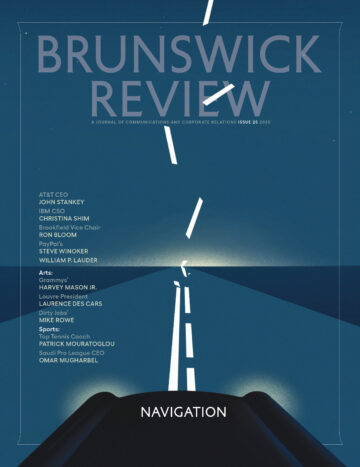
Navigation
Most read from this issue
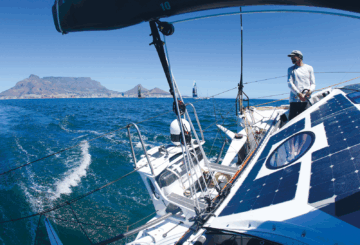
The Skipper

